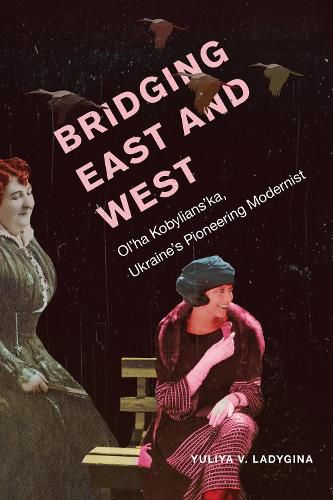Readings Newsletter
Become a Readings Member to make your shopping experience even easier.
Sign in or sign up for free!
You’re not far away from qualifying for FREE standard shipping within Australia
You’ve qualified for FREE standard shipping within Australia
The cart is loading…






Bridging East and West explores the literary evolution of Ol'ha Kobylians'ka, one of Ukraine’s foremost modernist writers. Investigating themes of feminism, populism, Nietzscheanism, nationalism, and fascism in her works, this study presents an alternative intellectual genealogy in turn-of-the-century European arts and letters whose implications reach far beyond the field of Ukrainian studies.
For feminist scholars, Bridging East and West makes accessible a thorough account of a central, yet overlooked, woman writer who served as a model and a contributor within a major cultural tradition. For those working in Victorian studies or comparative fascism and for those interested in Nietzsche and his influence on European intellectuals, Kobylians'ka emerges in this study as an unlikely, but no less active, trailblazer in the social and aesthetic theories that would define European debates about culture, science, and politics in the first half of the twentieth century. For those interested in questions of transnationalism and intersectionality, this study’s discussion of Kobylians'ka’s hybrid cultural identity and philosophical program exemplifies cultural interchange and irreducible complexities of cultural identity.
$9.00 standard shipping within Australia
FREE standard shipping within Australia for orders over $100.00
Express & International shipping calculated at checkout
Bridging East and West explores the literary evolution of Ol'ha Kobylians'ka, one of Ukraine’s foremost modernist writers. Investigating themes of feminism, populism, Nietzscheanism, nationalism, and fascism in her works, this study presents an alternative intellectual genealogy in turn-of-the-century European arts and letters whose implications reach far beyond the field of Ukrainian studies.
For feminist scholars, Bridging East and West makes accessible a thorough account of a central, yet overlooked, woman writer who served as a model and a contributor within a major cultural tradition. For those working in Victorian studies or comparative fascism and for those interested in Nietzsche and his influence on European intellectuals, Kobylians'ka emerges in this study as an unlikely, but no less active, trailblazer in the social and aesthetic theories that would define European debates about culture, science, and politics in the first half of the twentieth century. For those interested in questions of transnationalism and intersectionality, this study’s discussion of Kobylians'ka’s hybrid cultural identity and philosophical program exemplifies cultural interchange and irreducible complexities of cultural identity.